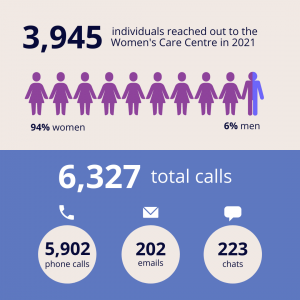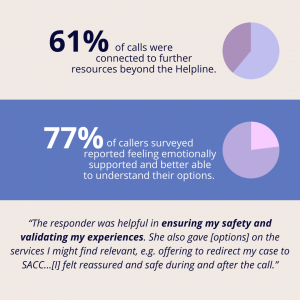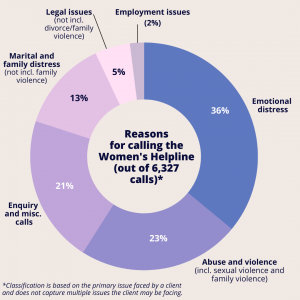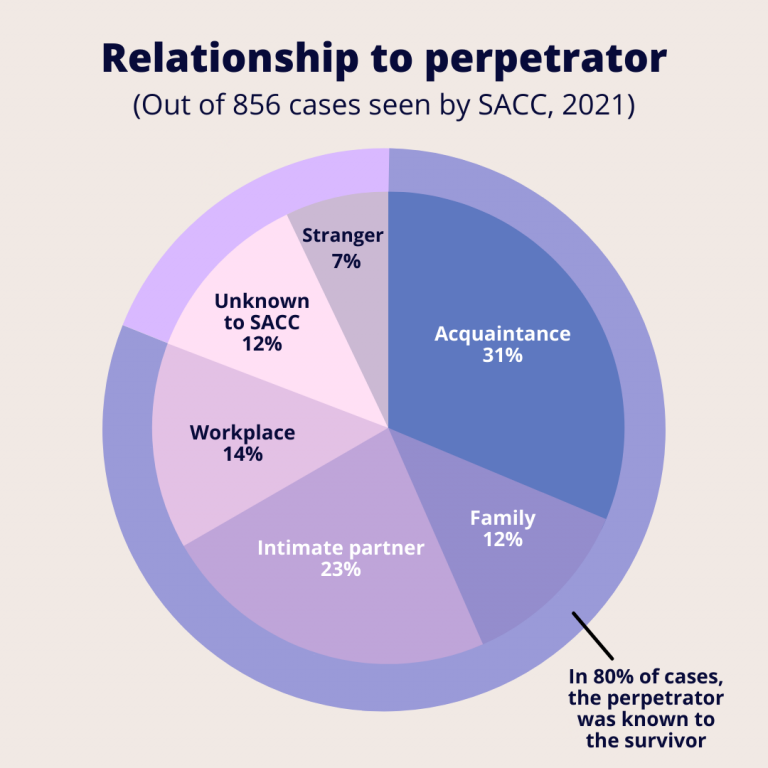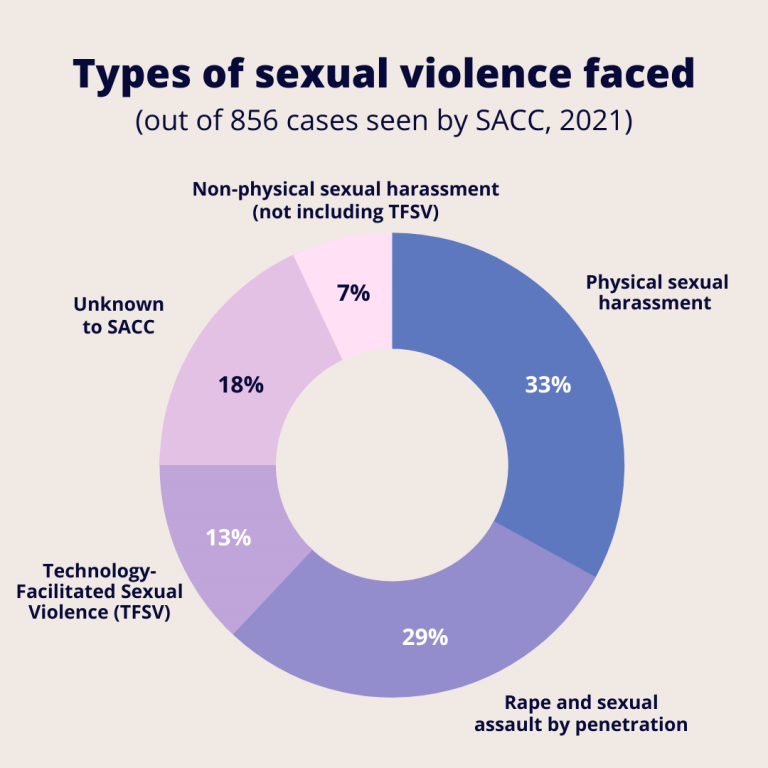menu
Centre
Care Centre
CARE

AWARE’s CARE services provide trauma-informed and gender-informed support services to individual women facing distress, gender-based abuse, violence, harassment and a range of other issues. We work closely with external partners in the social service sector in Singapore, and also advocate for gender- and trauma-informed practices among key stakeholders. AWARE’s CARE team comprises the Women’s Care Centre (WCC) and the Sexual Assault Care Centre (SACC). While WCC supports women facing any distress situation, SACC specialises in providing support to sexual assault survivors of all genders.
CARE provides its various support services through a dedicated team of staff, consultants and volunteers. In 2021 we engaged 83 dedicated volunteers (including Helpliners, lawyers and counsellors), from different walks of life, to provide a total of 12,333.7 hours of support to women in need in Singapore. This is collectively equivalent to around 1,542 days of meaningful community work.
Below are some key insights and highlights from the services provided by our two centres in 2021.
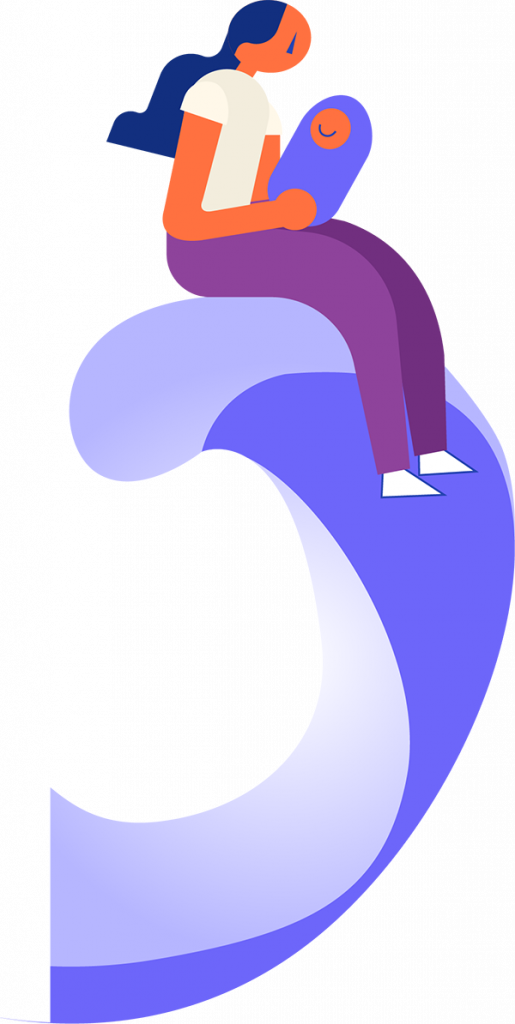
Women’s Care Centre

2021 was a strong year for the Women’s Care Centre. WCC provided services to almost 4,000 (3,945) women in 2021 through our first response channels and various direct services.
We noticed a greater demand for support around mental health and emotional distress and worked hard to meet the needs of our clients. We also worked in partnership with other agencies in the community to promote the needs of the women who reached out to us, offering women-centric, non-judgemental and affordable assistance.
Operationally, we saw the continuity of remote operations, with staff and volunteers gaining stability and confidence in utilising technology to adapt and further automate service provision.
I. First Response
WCC’s First Response channels include the Women’s Helpline, Helpline email and online chat service. These are the first points of contact for women reaching out to CARE. First Response is run with the help of staff, consultants and volunteers, who bring a diverse range of cross-sectoral expertise to the table: from social work, psychology and medicine, to public administration, law, computer science and business administration.
Since its inception in 1991 and after 30 years in operation, the Women’s Helpline has equipped a diverse group of women to provide non-judgemental, empowerment-focused assistance and information. Grounded in feminist principles, the Helpline treats callers as equals, recognising women as resourceful and capable even in the most difficult and challenging situations.
The online chat service, which was launched in May 2020, saw 223 sessions—an increase in demand of 12.6% in 2021—with 75% of those who accessed the service indicating that they did not have a quiet or safe place to access support over the phone, and/or did not want anyone to know they were seeking help.
The prolonged COVID-19 pandemic has had a significant impact on women’s mental health. In 2021, WCC First Response channels saw a 9% increase in emotional and psychological distress over 2020 (with 36% of our total callers seeking support for this issue in 2021). This could be the result of increased caregiving responsibilities, the struggle to balance work and family, or anxiety about getting sick and experiencing loss of income. The stress of staying at home for longer periods, with sustained curbs on social interactions, could also have been a factor, as social support systems for women became even more limited in COVID’s second year.
2021 at a glance

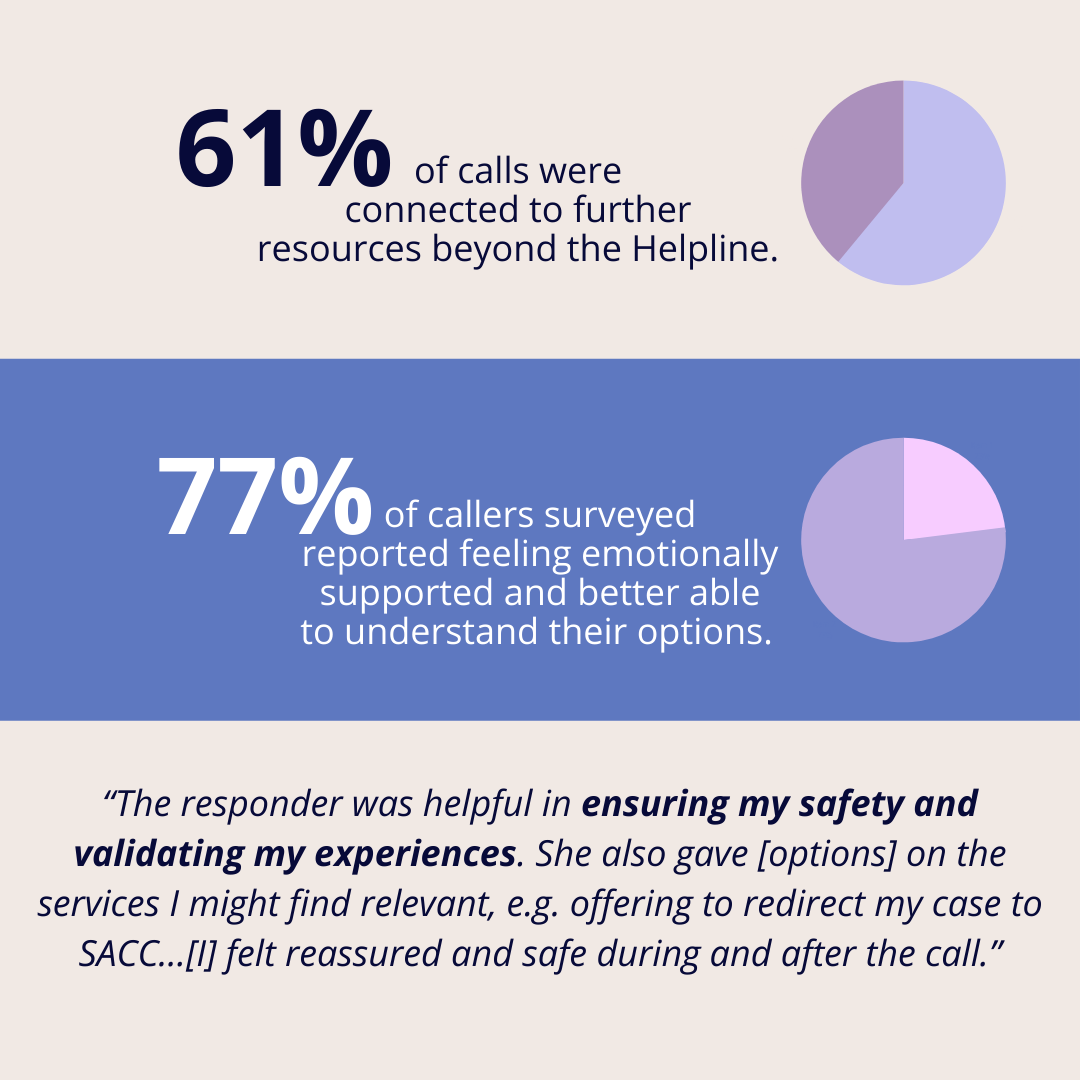

WCC Helpliners online recruitment drive 2021
WCC Helpliners are trained volunteers identified as having the skills and values required to support women via the Helpline. Championing the spirit of volunteerism and community participation in Singapore, WCC undertook its second online Helpliner recruitment drive in 2021. By the end of December, we had 21 new volunteers sign up for a commitment of 24 months of training and volunteering to run the Women’s Helpline. Their sessions commenced in February 2022.
Helpliner demographics
- Helpliners range in age from 23 – 60 years old.
- Languages spoken: English, Mandarin, Malay, Tamil, Punjabi, Hindi, Marathi, Urdu, Bengali, Japanese, Spanish, Italian, German and Russian.
- The Helpliners come from diverse backgrounds, from stay-at-home parents to individuals with experience in social work, counselling, sociology, psychology, higher education, research, medicine and public health, dentistry, finance, law, HR, computer science, nutrition, sports science, policing, communications, theatre, business, retail and management.
All Helpliners complete a biweekly two-month “classroom” training programme on self-awareness and values, family violence, family law, mental health, first response for survivors of sexual assault, trauma-informed first response and more.
In September, a graduation party was held for volunteers who joined in 2020. Many more dedicated volunteers helped respond to callers in need on the Helpline throughout 2021. Here’s what one had to say about her volunteering journey:
“I love the new norm [of remote volunteering] as it saves me lots of travelling time. It also allows me to pick up calls near the end of my shift, since the risk of the call extending beyond my shift is no longer a concern.”
II. Direct Services
WCC Counselling
WCC’s counselling service recognises that women are the experts of their own situations. Our counsellors provide non-judgemental support focused on increasing women’s safety and access to resources. We work to build clients’ knowledge about available options and work with clients to promote a strong and positive sense of self.
A big focus for the counselling team in 2021 was stabilisation, after another tumultuous year managing the fluctuating changes of COVID-19. The team saw itself through process improvements and automation in scheduling and payment processes. The team also carried out capacity-building and monitoring exercises to ensure that counsellors were taken care of and equipped to provide high-quality support. This was very important in 2021, as the number of counselling sessions increased by 25.3% over 2020, alongside a 5.3% increase in clients, although our pool of counsellors remained consistent. We also saw more past clients resuming their sessions this year, in part due to the convenience of online sessions over Zoom. In order to promote ease of access to counselling support services, we remain an affordable option for clients despite a revision in counselling fees (starting July 2021). We offer a fee-waiver option for those in financial hardship.
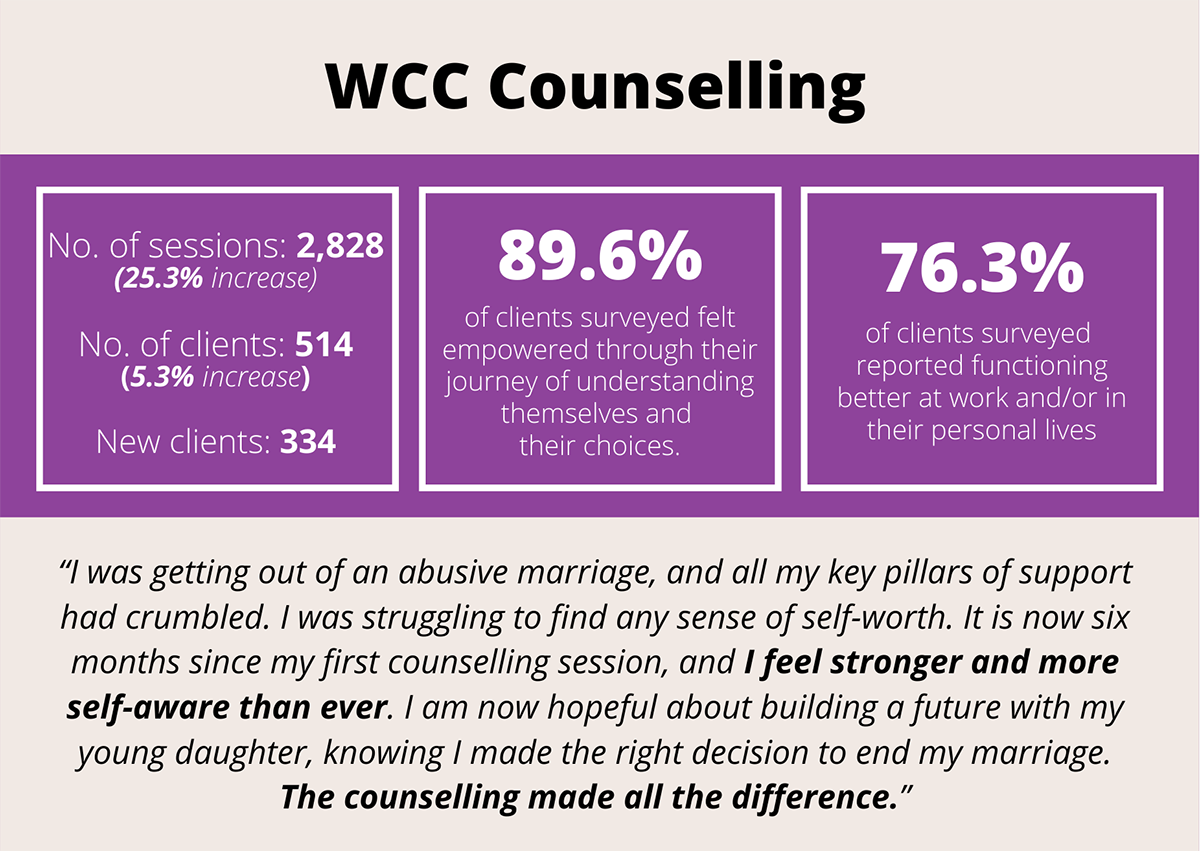
The counselling team and support staff have grown stronger amidst the challenges presented by COVID, establishing more robust and streamlined processes to provide consistent remote support to both volunteer counsellors and clients. Regular peer support sessions, external clinical supervisions and training were also conducted for the counsellors. Despite the fee revision, counselling referral requests remain high. Active interventions continued throughout the year to support increasing demand while ensuring clients with high needs were prioritised.
Going forward, the counselling team has identified opportunities to grow, continue developing its capacity and enhance operational efficiency to maintain our professionalism.
WCC Legal Clinic
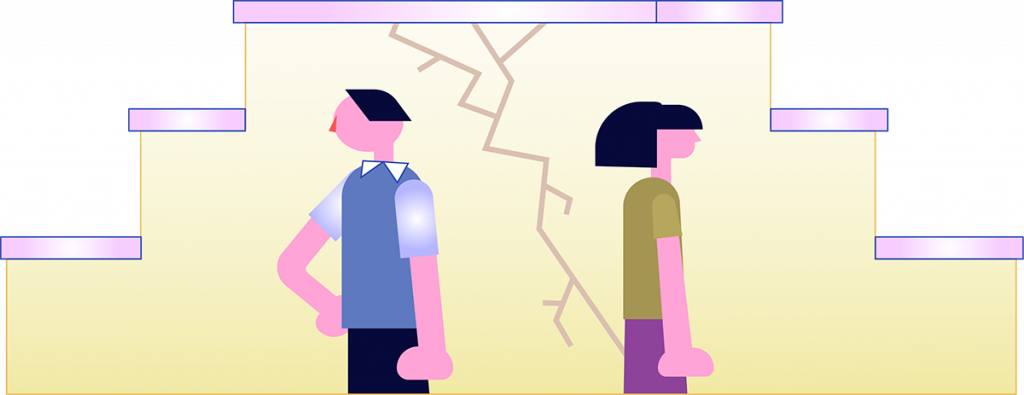
The WCC legal clinic provides free, 20-minute legal consultations to women about issues such as family and intimate partner violence, marital issues (divorce, separation, maintenance and/or custody) and employment issues. In 2021 the legal clinic provided consultations via telephone and the team worked hard to mitigate any disruption to service throughout the pandemic. In the last quarter of 2021, the legal clinic frequency was lowered to allocate resources more efficiently. We also reviewed our partnerships with various law firms and the Law Society to provide improved access to both civil and Syariah legal support. Most clients reported finding their sessions to be highly satisfactory and the advice they received to be valuable. Feedback was largely positive.
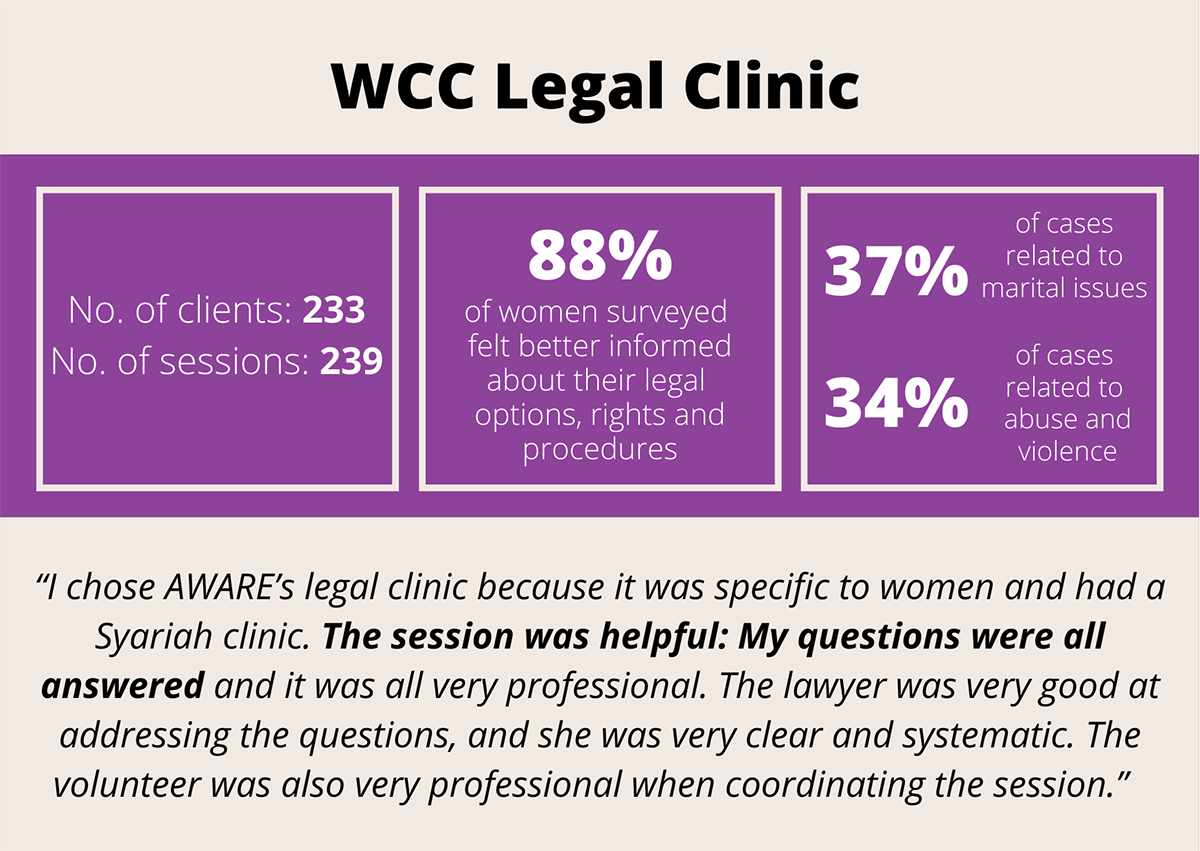
Sexual Assault Care Centre

SACC continues to be the only gender- and trauma-informed specialised service for survivors of sexual assault in Singapore. Because of the lack of support services for survivors of other genders apart from women, SACC continues to extend its services to all survivors in Singapore.
In 2021, SACC provided support to survivors in 1,032 cases of sexual assault through our first response channels and support services. 2021 was the second year in a row that SACC supported over a thousand cases.
After a very busy 2020, 2021 was all about stabilising and strengthening our team to be able to continue to provide support to survivors of sexual assault. We adopted focused strategies, including expanding our staff and volunteer support pool, encouraging relevant training options for the team, and adopting smart technologies to improve operational efficiency. Additionally, we implemented internal self-care initiatives including regular team huddles and supervision sessions for the team to share and learn from each other’s service provision experiences. Internally, we saw an increase in staff morale and well-being.
Another noteworthy change was our introduction of a new triaging service model to better identify the needs of survivors who reach out to us, and provide support, information and services to them more efficiently. This model was launched at a time when demand was far higher than what we could manage with our limited resources and funding. New services were also emerging in Singapore, such as the National Anti-Violence Hotline. This gave us the ideal opportunity to review our service-provision model. It led to a restructuring of our service boundaries.
Through the new model, we were able to prioritise the right amount of resources for cases with different levels of risk and needs. For cases with high risk or needs, we activated more resources. For some cases, we redirected them to more appropriate services. For example, we directed intra-family cases to Family Violence Specialist Centres. This model has proven to be key to our stability and to the growth of the team.
I. First response
SACC’s first response channels include the SACC Helpline, WhatsApp and email. Our dedicated cadre of first responders provide an empathetic listening ear and create a safe space for survivors to share their stories. After understanding the survivor’s needs, the first responders direct them to specialised SACC services, including the legal clinic, befriending and counselling services, or to external agencies that can support their needs better.
In 2021, of the total 1,032 cases attended to various SACC services, 856 new cases of sexual assault were given support by first responders.
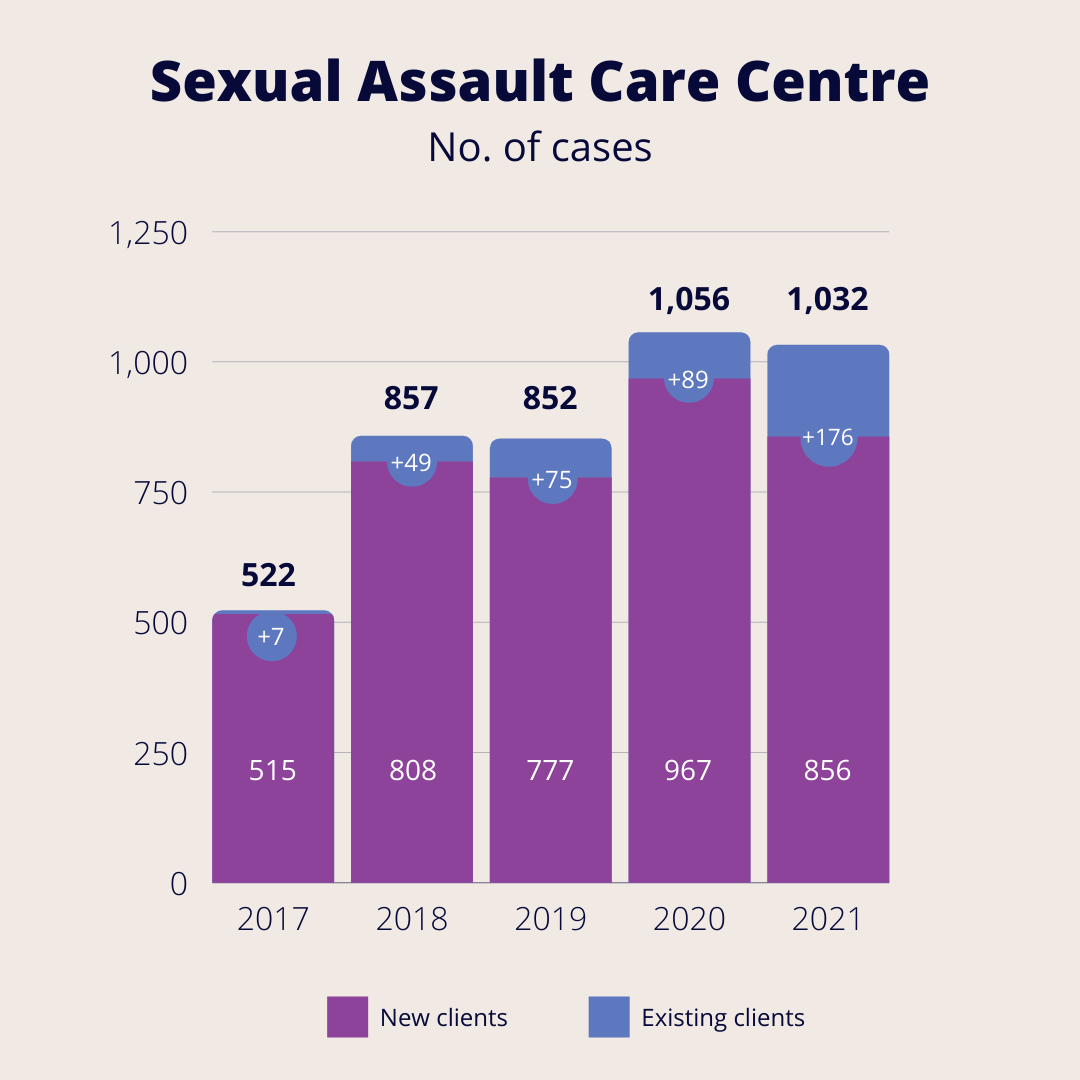
Of the new cases seen by SACC, the perpetrator was previously acquainted with the survivor in 8 out of 10 cases. This is consistent with SACC’s experience over the years, as well as worldwide statistics that find that sexual assault is most often perpetuated by a trusted person who has access to the survivor. A majority of cases involved some form of physical sexual violence.
A small number of clients identified as part of the LGBTQ community. LGBTQ individuals may face barriers accessing services but also experience unique vulnerabilities in terms of sexual assault. This highlights the need for services in Singapore to be gender-informed and intersectional in approach and practice.
We identified other key trends about survivor’s help-seeking behaviour from the 856 new cases seen by the centre:
- Around 95% (812 out of 856 cases) of survivors who reached out to SACC were cisgender women, transgender women or non-binary (the latter two comprising less than 1%).
- Where it was known to SACC (482 out of 856 cases), 62% (299 out of 482) reached out to SACC within five months of the incident.
- 18% of the cases were related to childhood sexual violence. Many of these survivors did not seek help until youth or adulthood, for several reasons, including only just realising that what happened to them was wrong or that help was available.
II. Direct services
SACC services include case management, counselling, legal clinic and befriending. Our services aim to provide survivors with emotional support and information about their situation, rights and resources, so that they can make informed decisions about their next steps.
In order to cater to the increase in number of people reaching out to SACC for help and support, we expanded our pool of case managers and counsellors. Being the only centre in Singapore that provides specialised services to survivors of sexual assault, SACC continued to build its knowledge through ground experience. We worked on internal protocols and SOPs to build capacity and efficiency in order to cater to a wide range of cases and vulnerable groups.
The infographics below highlight the services provided by the SACC team in 2021. According to feedback, survivors felt that they had been given support and were better informed through our services.
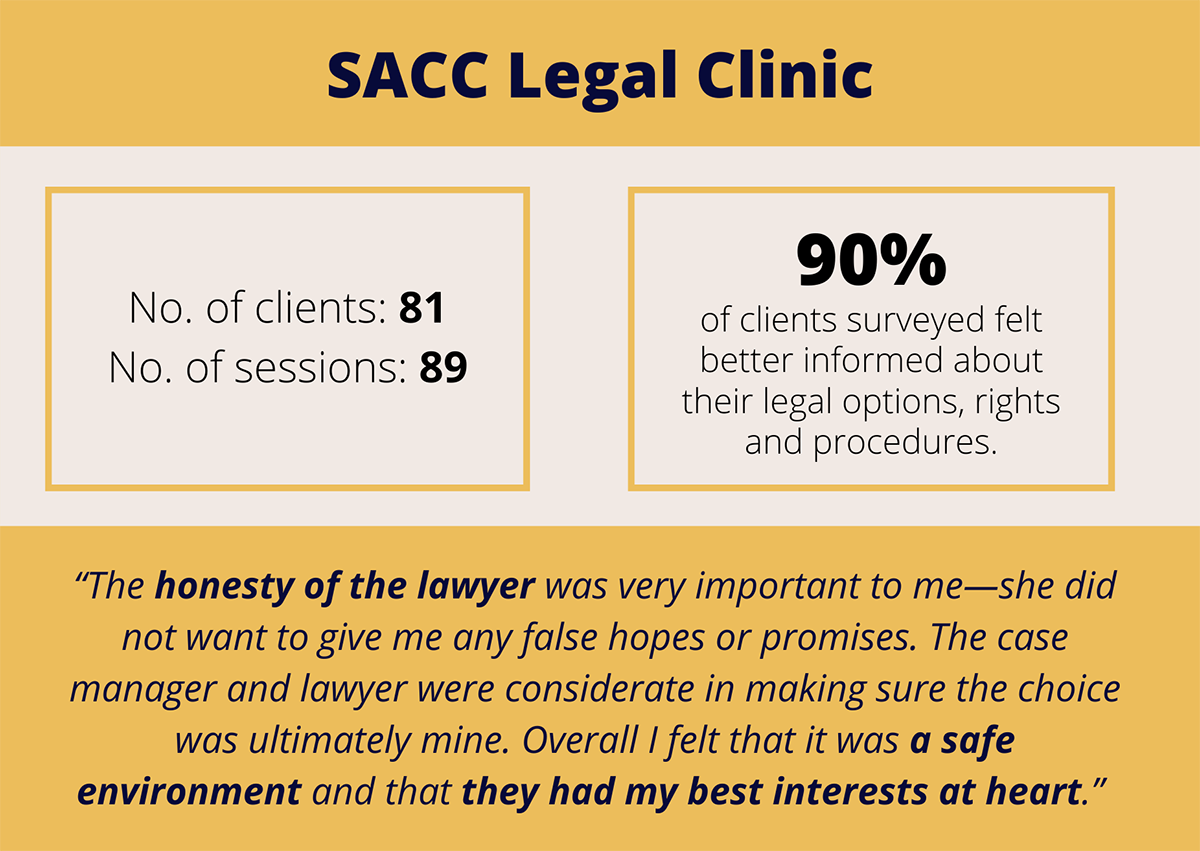
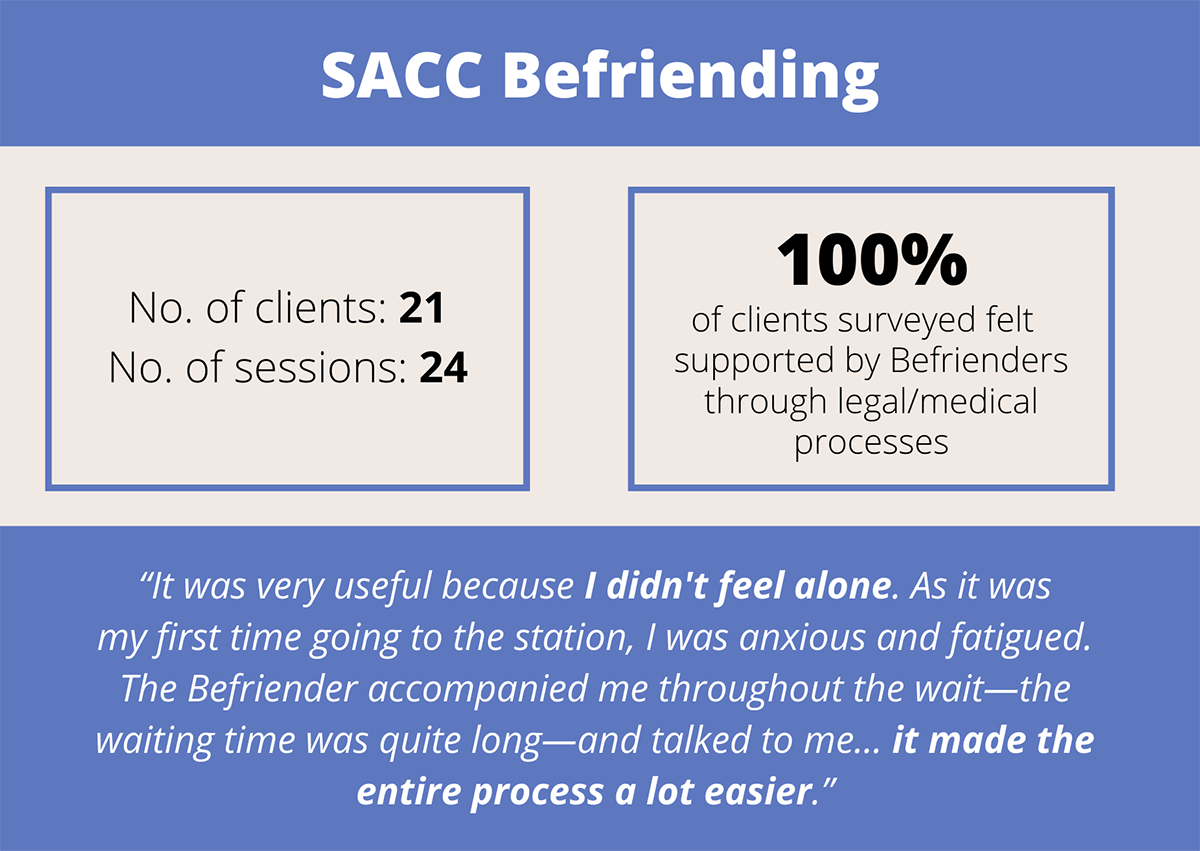
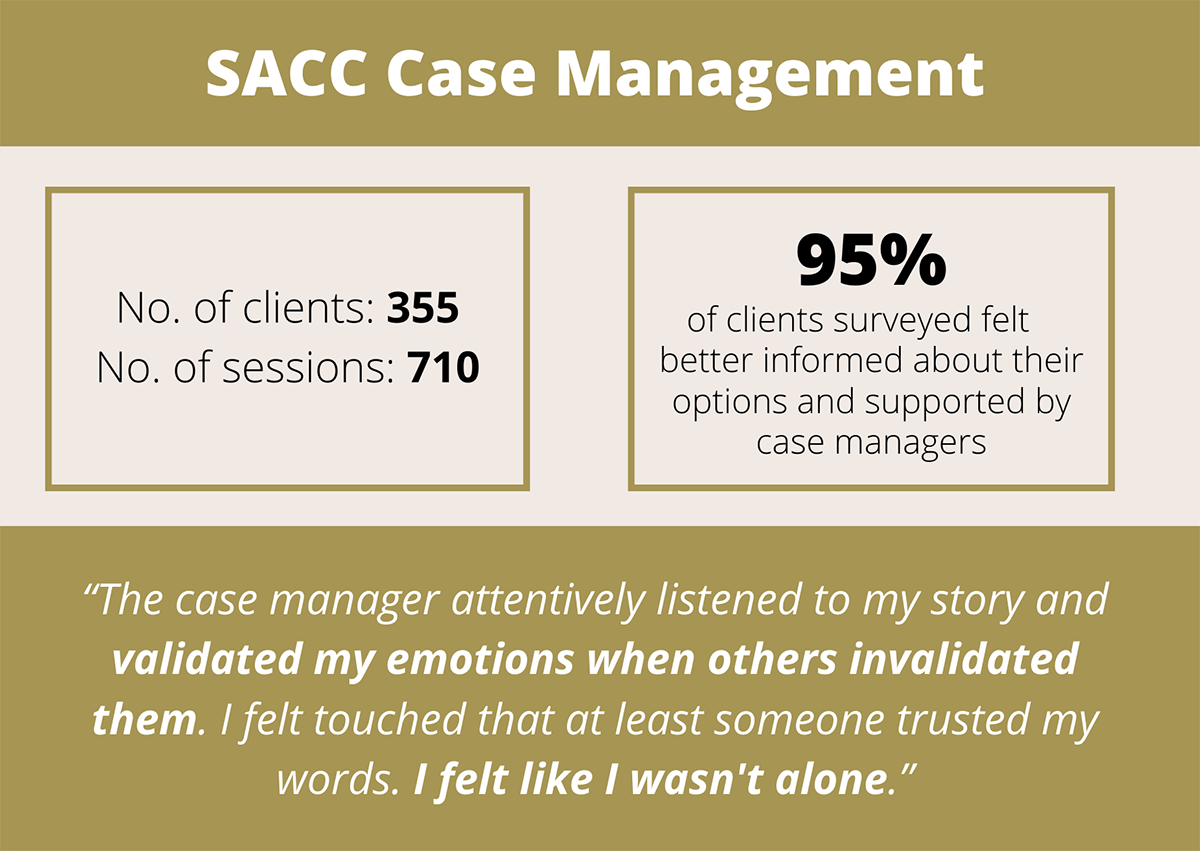
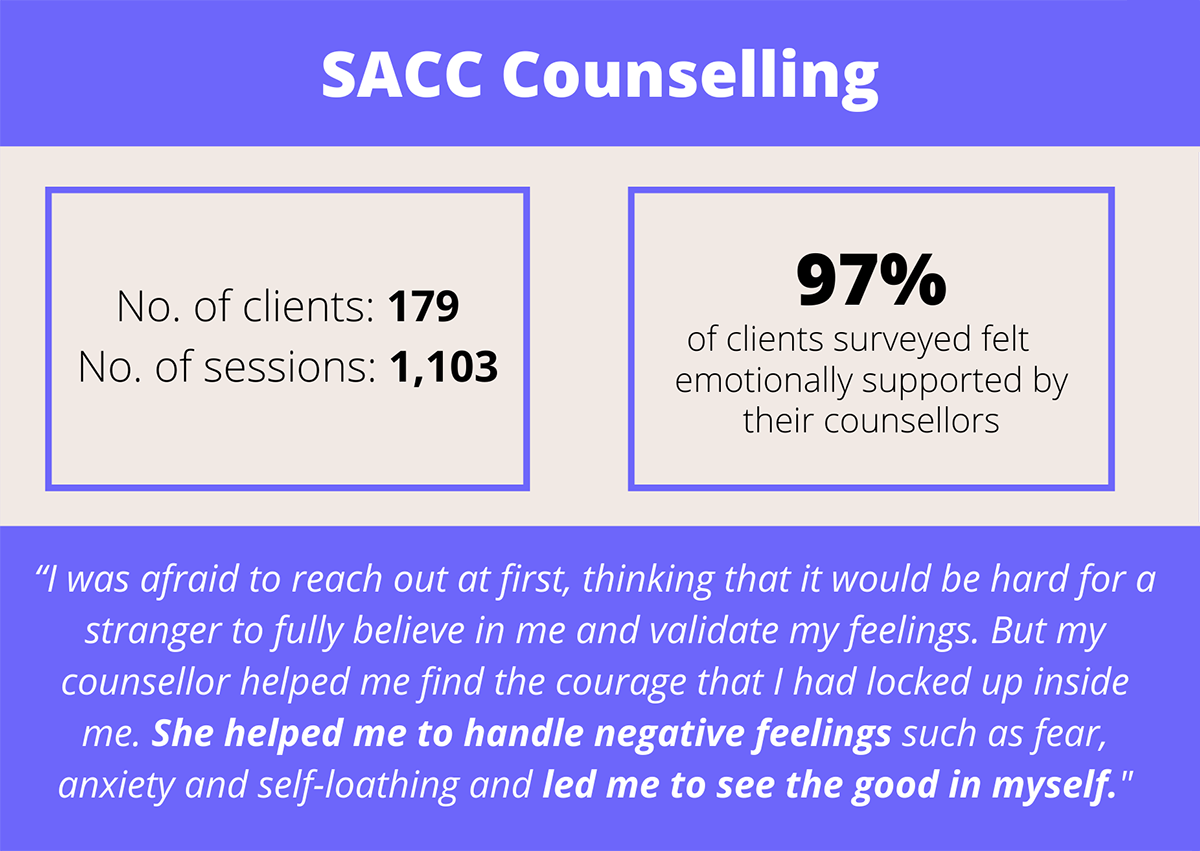
III. Community and stakeholder engagement
Improved access to justice
SACC continued case advocacy and cause advocacy work with the criminal justice system by working with the Attorney General Chambers, Serious Sexual Crimes Branch and the Law Society of Singapore (LSS). Case and cause advocacy is an important way of working within existing systems to adopt more survivor-centric and trauma-informed approaches.
For the third time, we collaborated with LSS to train defence lawyers on trauma-informed practices. The event, titled “Trauma-informed Conduct of Sexual Offence Trials”, was well-attended (with 272 defence lawyers present) and positively received.
Improved access to support
SACC conducted knowledge-exchange sessions with a number of social service agencies and other organisations, such as Care Corner Project Start, TransFSC, Limitless and NUS Care Unit (NCU). This was done in order to build SACC’s knowledge on issues outside our expertise while sharing our professional experience of supporting survivors of sexual assault. Through some of these partnerships, we also created referral processes such that there is continuity of care for survivors should they require different forms of support from different agencies.
One happy vestige of our 2018-2020 Aim for Zero campaign is SACC’s Fellowship programme. In 2020, we launched the Sexual Assault First Responder Fellowship, which builds the capacity of professionals and helps them venture further into the social services sector. We’re proud to report that in 2021, two Fellows graduated from the programme and went on to work in the social service sector. We received positive feedback from both Fellows about the programme and how it gave them knowledge and skills to work with survivors of sexual assault throughout their careers. We wish them luck!


